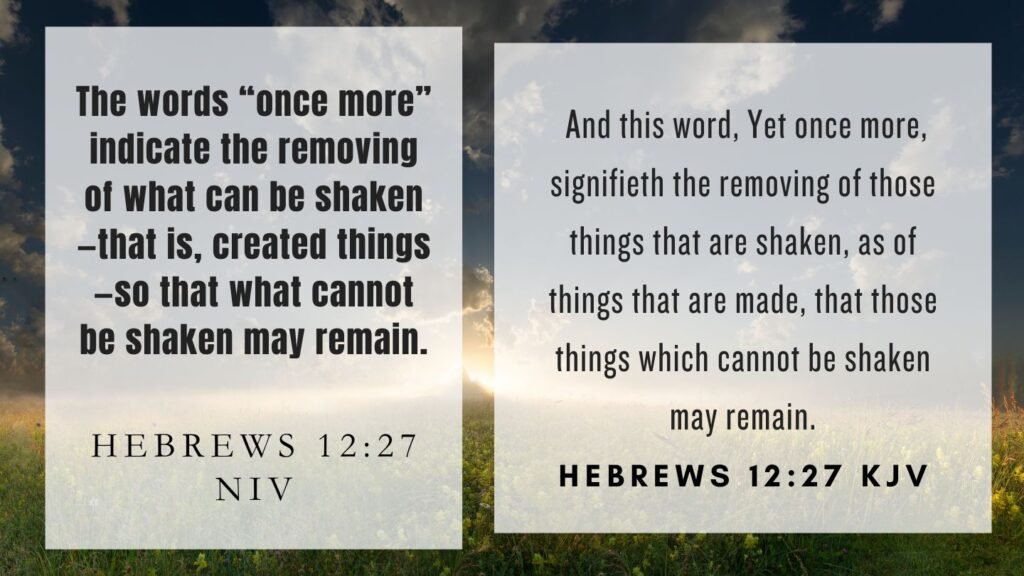
And this word, Yet once more, signifieth the removing of those things that are shaken, as of things that are made, that those things which cannot be shaken may remain. — Hebrews 12:27 KJV
The words “once more” indicate the removing of what can be shaken—that is, created things—so that what cannot be shaken may remain. — Hebrews 12:27 NIV
Reflection on Verse for Today
What does it mean when Scripture tells us that things will be “shaken,” so that only what is unshakable may remain?
In a world filled with uncertainties, whether they be in the realm of politics, economics, or personal relationships, the concept of something being “unshakable” offers us both comfort and hope. This bible verse from Hebrews places us today in a context where the transient and perishable aspects of life are stripped away, leaving only what is eternal.
The shaking is not random or cruel; it serves a purpose. It is akin to refining fire, eliminating impurities and revealing the essence of things. Our values, beliefs, relationships, and even the work we do, all pass through this refining process. What survives this process is what was true and unshakable to begin with. It’s a removal of the facade, a pulling back of the veil that separates the eternal from the temporary.
For Christians, this unshakable foundation is Jesus Christ. He is the cornerstone upon which a resilient, unmovable faith is built. Through trials and tribulations, a life built on the foundation of Christ will remain steadfast. Paul writes to the Corinthians, “For no one can lay a foundation other than that which is laid, which is Jesus Christ” (1 Corinthians 3:11). When the shifting sands of time, culture, and worldly philosophies have had their full effect, what remains is the unchanging, unyielding love of God as manifested through Christ.
But the bible verse also calls us this day to self-examination. What in our lives is shakable? What idols have we erected that might not survive this godly shaking? It could be our pride, our reliance on material wealth, or even relationships that lead us away from God. The verse prompts us to evaluate what we consider essential, urging us to align our lives with the unshakable kingdom of God.
This reflection, ultimately, gives us both a caution and a hope. The caution is that we must not become too attached to the things of this world, things that will not last. The hope is that there is something—Someone—Who is unshakable, Who provides a stable foundation for our lives, Who will remain when everything else has faded away.
In moments of doubt or crisis, this verse serves as a reminder for us today that not all is lost. It reminds us that after the shaking, after the testing, after the fire, what remains is purified, stronger, and eternal. We are thus encouraged to cling to what is good, true, and everlasting, to anchor our souls in the unshakable kingdom of God.
